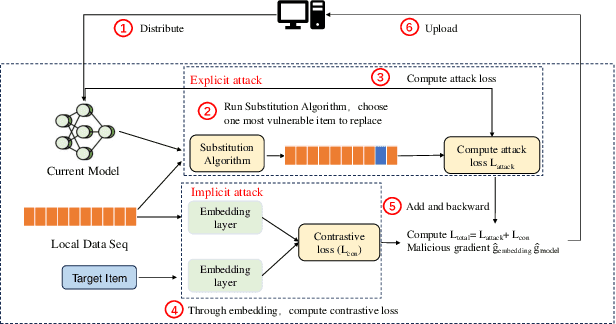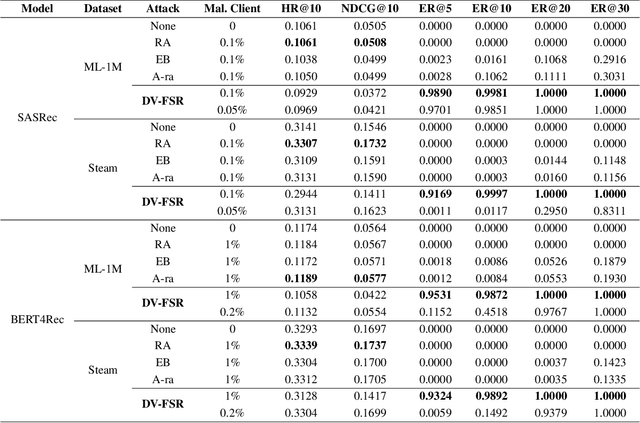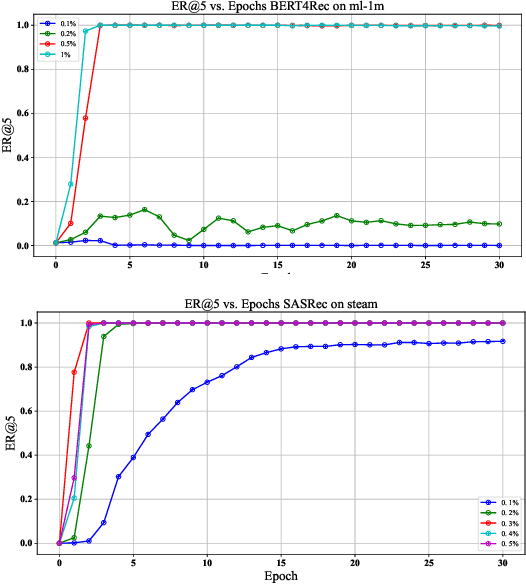DV-FSR: A Dual-View Target Attack Framework for Federated Sequential Recommendation
Paper and Code
Sep 10, 2024



Federated recommendation (FedRec) preserves user privacy by enabling decentralized training of personalized models, but this architecture is inherently vulnerable to adversarial attacks. Significant research has been conducted on targeted attacks in FedRec systems, motivated by commercial and social influence considerations. However, much of this work has largely overlooked the differential robustness of recommendation models. Moreover, our empirical findings indicate that existing targeted attack methods achieve only limited effectiveness in Federated Sequential Recommendation (FSR) tasks. Driven by these observations, we focus on investigating targeted attacks in FSR and propose a novel dualview attack framework, named DV-FSR. This attack method uniquely combines a sampling-based explicit strategy with a contrastive learning-based implicit gradient strategy to orchestrate a coordinated attack. Additionally, we introduce a specific defense mechanism tailored for targeted attacks in FSR, aiming to evaluate the mitigation effects of the attack method we proposed. Extensive experiments validate the effectiveness of our proposed approach on representative sequential models.
 Add to Chrome
Add to Chrome Add to Firefox
Add to Firefox Add to Edge
Add to Edge